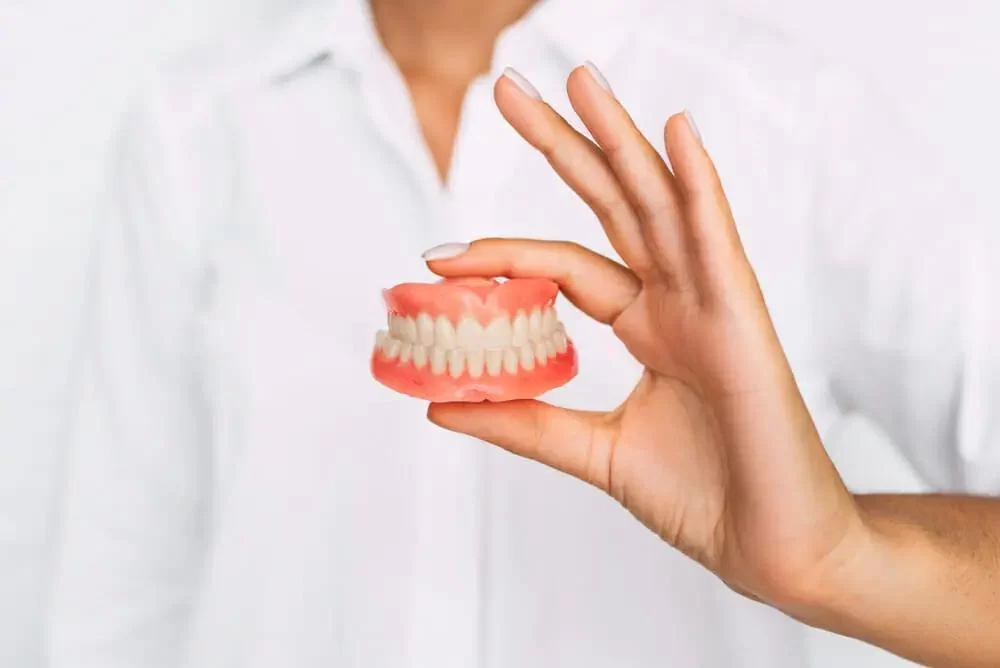
How to Maintain Dental Health with Dentures
For many people, dentures are a critical part of life, helping them regain functionality and confidence in their smiles. However, taking proper care of your dentures is crucial for maintaining not only their appearance but also your overall oral health. Whether you are new to dentures or have been wearing them for years, this guide will provide you with the essential tips on how to maintain dental health with dentures. Read on to discover some expert advice, cleaning techniques, and best practices for denture maintenance.
1. The Importance of Regular Cleaning
Cleaning your dentures daily is an essential part of maintaining oral hygiene and preventing dental problems. Just like natural teeth, dentures collect food particles, bacteria, and plaque, which can lead to bad breath, staining, and infections if not properly cleaned. You should clean your dentures at least once a day using a soft-bristled brush and a non-abrasive denture cleanser. Avoid using toothpaste, as it can scratch the surface of the dentures, allowing bacteria to thrive.
Here’s a simple step-by-step guide to cleaning your dentures:
- Remove your dentures and rinse them under lukewarm water to remove any loose food particles.
- Apply a small amount of denture cleanser or a mild soap to your denture brush.
- Gently brush your dentures, paying attention to all surfaces, including the gums and teeth areas.
- Rinse your dentures thoroughly to ensure all cleanser is removed.
Be sure to brush your dentures over a folded towel or a basin of water to avoid accidental drops that could damage them. Don’t forget to clean the inside of your dentures where they come into contact with your gums, as plaque can build up in these areas too.
2. Soaking Your Dentures Overnight
In addition to daily brushing, soaking your dentures overnight in a denture cleaning solution or plain water is another effective way to keep them clean and free from harmful bacteria. Soaking not only helps to loosen any stubborn debris but also keeps your dentures hydrated, preventing them from drying out and becoming brittle.
Here’s how you can soak your dentures overnight:
- Place your dentures in a clean container, making sure they are fully submerged in a denture solution or water.
- If you use a denture cleaning solution, follow the manufacturer’s instructions for the correct amount of product to use.
- Leave the dentures in the solution overnight to ensure they are properly cleaned and refreshed.
It’s important not to use hot water to soak your dentures, as it could warp the plastic or alter the fit of your dentures.
3. Rinsing After Meals
After eating, it’s important to rinse your dentures with lukewarm water to remove any food particles that may be stuck in the crevices. This helps prevent buildup that could lead to bacterial growth or irritation of the gums. Even if you are not able to brush your dentures immediately after a meal, simply rinsing them can go a long way in maintaining their cleanliness and your oral health.
4. Checking Your Dentures Regularly for Signs of Damage
Regularly inspecting your dentures for signs of damage is vital to ensure they continue to fit properly and function effectively. Over time, dentures can become loose or develop cracks, chips, or other wear and tear. If you notice any of these issues, it’s important to consult with your dentist to get them repaired or replaced as necessary. Ill-fitting dentures can lead to sores, infections, or discomfort, so addressing these problems early is key to maintaining your oral health.
If you experience any discomfort or pain while wearing your dentures, do not hesitate to contact your dentist. They can make adjustments or recommend new dentures if needed.
5. Maintaining Oral Health Without Natural Teeth
While dentures replace missing teeth, it’s still important to maintain the health of your gums, tongue, and any remaining natural teeth. Regular visits to your dentist are essential to monitor your overall oral health, check for oral cancer, and make sure your dentures continue to fit well. Your dentist may also provide professional cleaning to ensure your gums and dentures stay healthy.
Be sure to brush your gums and tongue every day with a soft toothbrush to remove plaque and stimulate blood circulation. This is particularly important if you wear full dentures. Your dentist can offer additional advice on how to maintain your oral health, including advice on using fluoride products if necessary.
6. Avoiding Harmful Habits and Foods
Certain habits and foods can damage your dentures or affect your oral health. Avoid chewing hard foods like ice, nuts, or hard candy, as these can break or distort dentures. Similarly, avoid sticky or chewy foods like caramel, chewing gum, or taffy, which can stick to your dentures and make them harder to clean.
Additionally, refrain from smoking, as it can stain your dentures and contribute to gum disease. Smoking can also lead to bad breath and increase your risk of oral infections, so it’s best to quit or reduce smoking for the sake of your oral health and denture longevity.
7. Understanding the Role of Your Denture Adhesive
Denture adhesives can be helpful for those who experience discomfort or difficulty keeping their dentures in place. However, it’s important not to rely too heavily on adhesives. They are meant to provide temporary support and should not replace proper care and maintenance of your dentures.
When using adhesive, apply a small amount to the edges of the dentures and follow the instructions provided on the packaging. Be sure to clean the adhesive off your dentures thoroughly when you remove them for soaking or cleaning. Overuse of adhesive can also cause irritation to your gums, so use it sparingly and in conjunction with regular denture care practices.
8. Keeping Your Dentures Fresh with Regular Professional Cleanings
Even with proper at-home care, regular professional cleanings by your dentist are important for keeping your dentures in top condition. Your dentist can remove stubborn stains, plaque, and tartar buildup that might not be eliminated with daily brushing alone. They will also check for any adjustments needed to ensure a proper fit and prevent discomfort or infection.
Regular visits to your dentist will not only help maintain the health of your dentures but also protect the health of your gums and the remaining natural teeth, ensuring that you continue to enjoy a healthy and beautiful smile for years to come.
By following these tips, you can ensure that your dentures remain clean, comfortable, and long-lasting, helping you maintain excellent dental health for years to come. Taking the time to care for your dentures today will pay off with a fresh and healthy smile tomorrow.







 Spadola III Joseph w DDS3.0 (3 review)
Spadola III Joseph w DDS3.0 (3 review) Christopher R. Madsen, DDS5.0 (513 review)
Christopher R. Madsen, DDS5.0 (513 review) Parker Dental & Orthodontics4.0 (4 review)
Parker Dental & Orthodontics4.0 (4 review) Cerritos Dental Surgery5.0 (137 review)
Cerritos Dental Surgery5.0 (137 review) Lake Area Dental4.0 (24 review)
Lake Area Dental4.0 (24 review) Teaneck Dentist4.0 (115 review)
Teaneck Dentist4.0 (115 review) The Importance of Oral Health Education During Pregnancy for a Healthy Pregnancy
The Importance of Oral Health Education During Pregnancy for a Healthy Pregnancy Best Tips for Brushing Your Teeth Properly for Healthy Gums: Essential Techniques for Oral Health
Best Tips for Brushing Your Teeth Properly for Healthy Gums: Essential Techniques for Oral Health Why Skipping Dental Checkups Can Lead to Bigger Oral Health Problems
Why Skipping Dental Checkups Can Lead to Bigger Oral Health Problems Advantages of Porcelain Dental Restorations
Advantages of Porcelain Dental Restorations How Can Diabetes Cause Tooth and Gum Problems? Preventing and Managing Oral Health Issues
How Can Diabetes Cause Tooth and Gum Problems? Preventing and Managing Oral Health Issues Healthy Habits for Promoting Good Oral Health and Hygiene: Tips for a Healthy Smile
Healthy Habits for Promoting Good Oral Health and Hygiene: Tips for a Healthy Smile